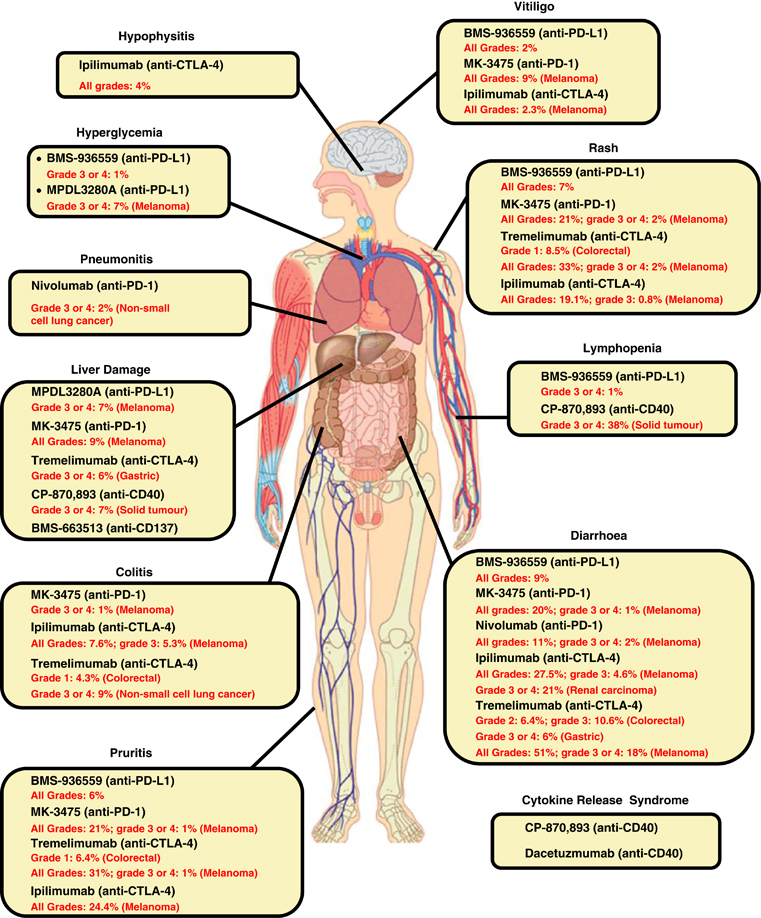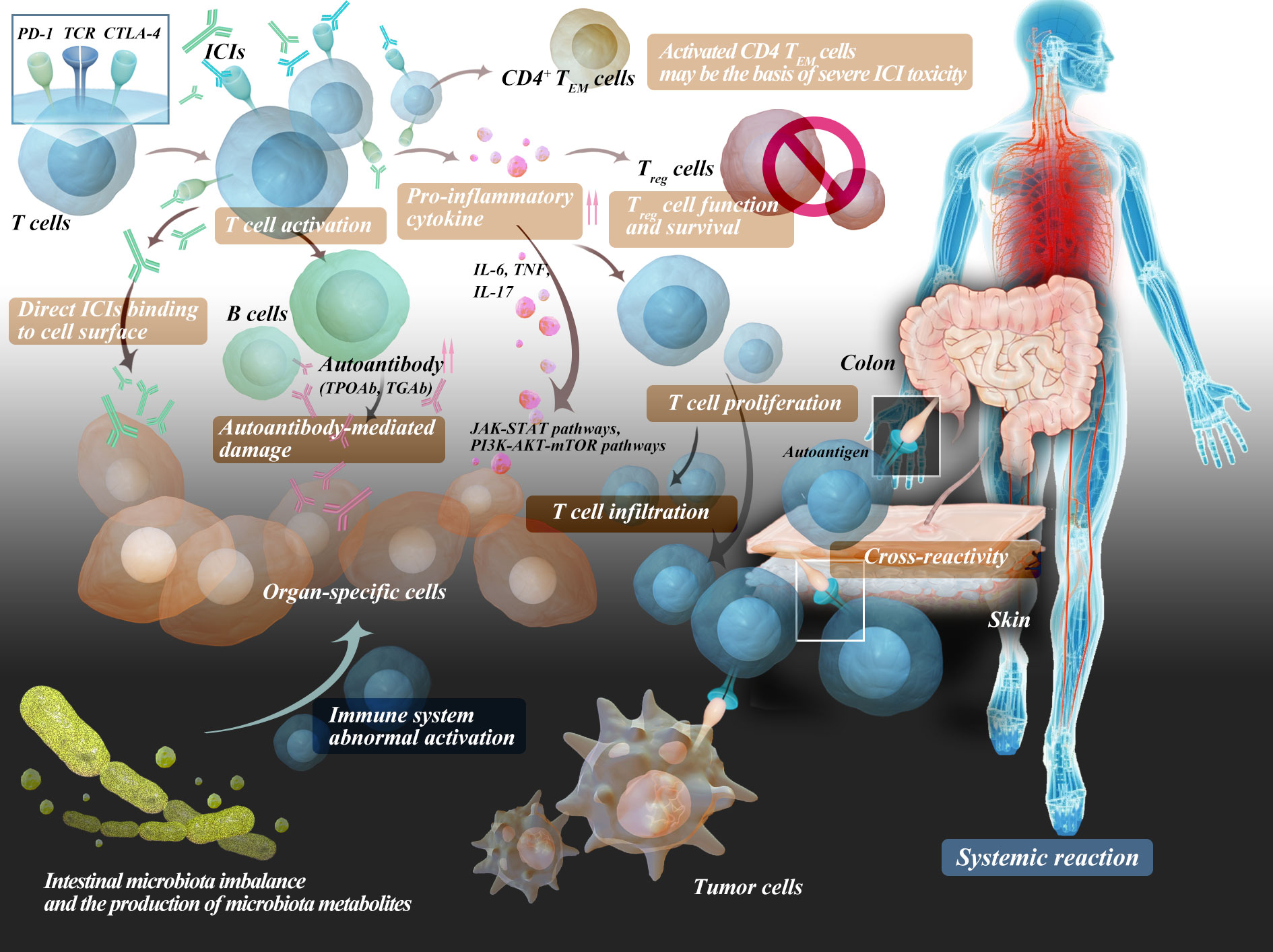Immunotherapy has become a game-changer in cancer treatment. By empowering the body's immune system to recognize and attack tumors, it offers a revolutionary approach to fighting this complex disease. However, this activation of the immune system can sometimes lead to unintended consequences – immune-related adverse events (irAEs).
While irAEs can be concerning, understanding them and their management is crucial.
Understanding irAEs
irAEs occur when immune cells stimulated by immunotherapy start mistakenly targeting healthy tissues alongside cancer cells. These events can affect various organs, with the most common culprits being:
- Skin: Rashes and dermatitis are frequent occurrences.
- Gastrointestinal tract: Diarrhea and inflammation (colitis) can arise.
- Endocrine system: Hormonal imbalances like hypophysitis (pituitary dysfunction) and thyroiditis (thyroid inflammation) can develop.
- Lungs: Inflammation of the lung tissue (pneumonitis) may occur.
- Liver: Hepatitis, or liver inflammation, is a potential side effect.
- Nervous system: Neurological issues like neuropathy (nerve damage) and myositis (muscle inflammation) can emerge.
The severity of irAEs can range from mild and manageable to life-threatening. Early detection is vital to prevent complications and ensure optimal treatment outcomes.
Researchers in this field can source all necessary components from Maxanim.
Managing irAEs: A Team Effort
Effectively managing irAEs requires a collaborative approach. Oncologists work alongside specialists like dermatologists, gastroenterologists, and neurologists depending on the affected organ system.
Treatment strategies are tailored to the specific irAE and its severity. Here's a glimpse into the most common approaches:
- Dose adjustments: In some cases, reducing the immunotherapy dosage or temporarily pausing it might be necessary.
- Corticosteroids: These medications act as immunosuppressants, curbing the overactive immune response.
- Immunomodulatory agents: For severe irAEs, drugs like TNF-alpha inhibitors can be used to regulate the immune system.
The Road Ahead in irAE Management
Researchers are actively exploring avenues to prevent and better manage irAEs. This continuous effort aims to improve the tolerability and efficacy of immunotherapy, ultimately benefiting a broader range of cancer patients.
Learn more about managing immune-related adverse events (irAEs) in this video:


Managing irAEs: Optimizing Cancer Immunotherapy